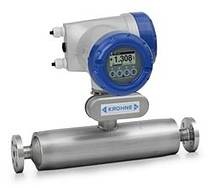A common mistake in selecting a flow meter to measure flow rate is basing the selection criteria on cost alone. While there isn’t a universal flow meter that performs in all types of conditions or applications, selecting a flow meter is easily done when you consider five basic questions.
How to Select a Flow Meter
A number of various parameters influence the selection of a flow meter for a specific task/application. Therefore, when selecting a flow meter for your specific use it is important to consider a variety of factors ranging from your own knowledge of available flow meter properties to the conditions of use, volume of fluids and fluid properties.
Considerations and selection criteria that will contribute to your choice of the proper flow meter include:

Purpose & Application of the Flow Meter
What exactly do you want the flow meter to accomplish? What are the requirements of the job at hand? What is the application type?
In addition to these questions, it’s also important to consider the category of flow measurement (liquids & gases), as that will help to define the type of sensor best suited in your respective environment. Similarly, identifying the place, or environment, where the flow meter will be used can help identify the size and range of the flow meter that will be necessary to achieve required accuracy.
Flow Profile of the Flow Meter
What are the flow rates and characteristics of the liquids or gases for your application? Have you identified minimum and maximum flow rates for your application? What do you know about the performance qualities of the specific flow meter?
Profile of the flow determines the momentum and other behaviors of fluid. Newtonian or non-Newtonian fluids have different viscosity, flow rate, pressure and velocity that will contribute to flowrates. It is important to be aware of these attributes to select the correct flow meter according to your specific requirements.
Flow Meter Performance & Capabilities
What size flow meter will be sufficient for your needs? Does the flow meter material or construction have any impact on the fluids of gases that you are moving? What about the pressure and temperature of the fluids and gas – how will that affect the performance of the flow meter or accuracy of measurement?
Behavior of the flow meter is prominently defined by the Reynolds number. It is a dimensionless quantity which defines the relationship between momentum and velocity of fluid that can determine whether the flow or stream is laminar or turbulent. This flow meter attribute, along with the flow meter chemical compatibility (material), fluid pressure and temperature will help identify the performance capabilities and accuracy of the flow meter for the specific liquid or gas application.
External Factors
What real life conditions may contribute to equipment downtime? Are their local environment or government regulations that might affect your operations? What about vendor selection?
There are a host of environmental conditions and factors beyond your control that may affect everything from flow meter selection to operations. In addition, factors tied to the installation of the flow meter and the general lifespan of the equipment might also weigh in on the flow meter decision making process.
Budget
What is the cost of the flow meter and related equipment? What about installation and maintenance costs? What are the costs of operations? Have you considered the expected lifespan of the flow meter or depreciation values?
You should plan to assign costs to the installation, preventative maintenance, repair, and running costs of a particular flow meter during the decision making process.
Flow Meters – Select the Right Instrument for Your Specific Application
Various parameters influence maintenance requirements and the life span of flow meters. Keeping in mind all parameters will direct buyers and users to select the best suited flow meter for their respective application.
